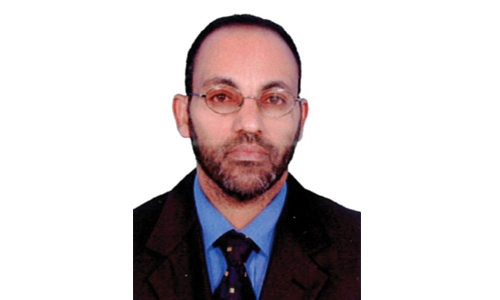Chemical attacks dashes Syria’s hope
“The brutal regime has done it again”, said the medic while treating a wounded child at the only hospital available in the town. Then came tens and hundreds of wounded and some died en route to the health facility. Once again, the regime has used nerve gas on civilian targets.
Following use of sarin gas against civilian targets in Ghouta, a Damascus suburb, in August 2013, killing more than thousand and wounding hundreds of innocent civilians including children, the international community condemned the act and called for military action against the Assad regime, but nothing has been done.
During that time, Russia came to Assad’s rescue by proposing a deal that would ensure the regime to handover all its chemical stock piles to international watchdog. The occasion gave a temporary concession and relief. It was believed to be a case of ‘never again’.
However, Chemical weapons experts were suspicious that the Assad regime might have hidden chemical weapons that could be used in the future. That suspicion was confirmed.
Last week, the regime attacked the town of Khan Sheikhun, in Idlib province with the same sarin gas used in 2013, killing dozens of people including children. The brutality of the regime went beyond gassing its people. Hours after the gas attack, the hospital where the victims were treated was bombed, bringing down rubble on the top of the medical doctors as they try to help the wounded.
This modern day brutality appears to have no parallel. The regime’s action has killed and buried any chance of peaceful political settlement for the devastated country.
The regime has tried to deny the accusations, but all pieces of evidence show that Assad was responsible for the deadly attack. The UN Syria envoy Staffan de Mistura believed that the attack was “a chemical launched from the air”. And only the regime has the capacity to do so.
The accusations and counter-accusations, the denials and the condemnations of the attack can neither help Syrians nor guarantee future similar incidents. The international community must assume its responsibilities, if any chance is left to save what is remained of Syria.
Above all, the regime’s hand over of all chemical weapons doesn’t mean it cannot manufacture deadly gases. Assad has the technical know-how, the raw materials, the infrastructure and experts needed to resume producing sarin and other nerve gases. They can produce tons of chemicals overnight. So what is the point of handing over the stocks? The step to de-arm the regime of its chemical weapons should have started from dismantling the factories and the infrastructure, destroying its raw materials and preventing from acquiring new supplies and sanctioning the experts. These things haven’t been done. This makes handing over chemicals a meaningless exercise.
Last Friday’s US strike on Syria’s Shayrat Air base, the first ever American missiles to have targeted Assad’s regime appears to be intended to deter further use of chemical weapons but not an end in itself. Political solution must be sought for a long term peaceful outcome.
Russia and Iran are blamed to have failed to bring the regime they cocoon under their control. Diplomatic means to stop such atrocity from being repeated starts with the actions taken by Russia and Iran to tame Assad.
However, according to Middle East Eye (MEE) April 5, 2017 report that ‘Russia has defended its ally and said Syrian government air strikes hit a rebel chemical weapons depot’, a comment the rebel groups strongly deny.
While the Syrian scenario accommodates dozens of players with varying interests ranging from geopolitics to sectarian motives, the Syrian people’s issue seems to have taken the back seat, exposing them to brutal killings and atrocities, paying heavy price along the way.
Related Posts

